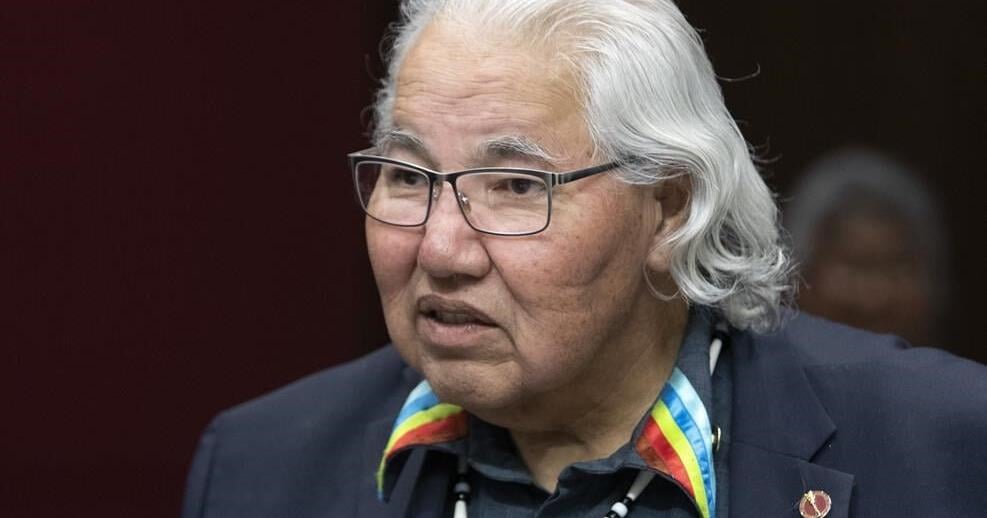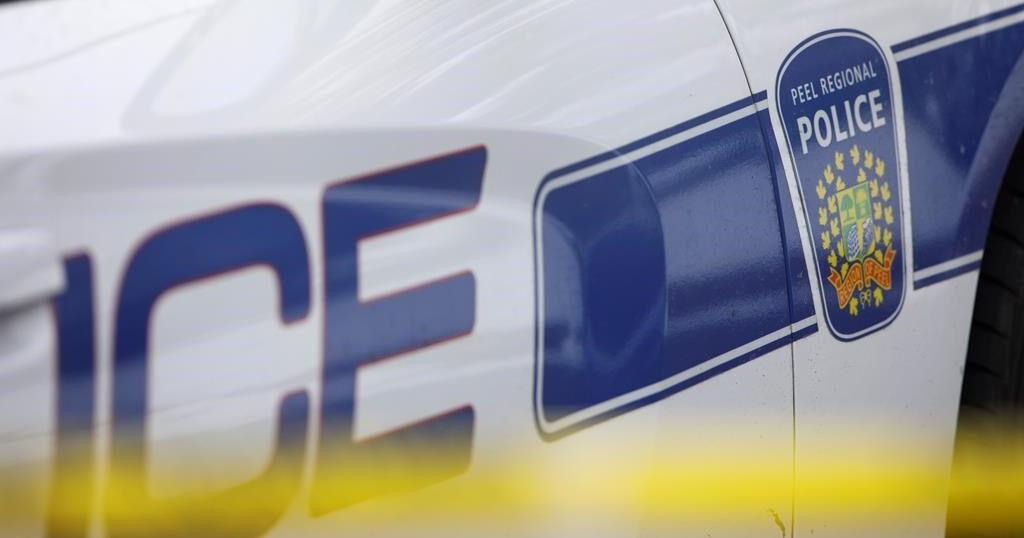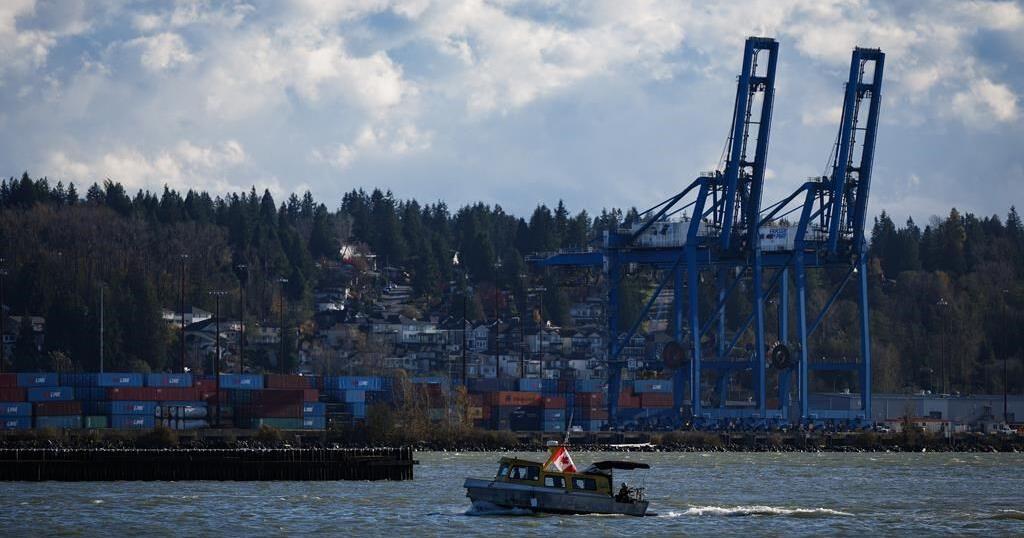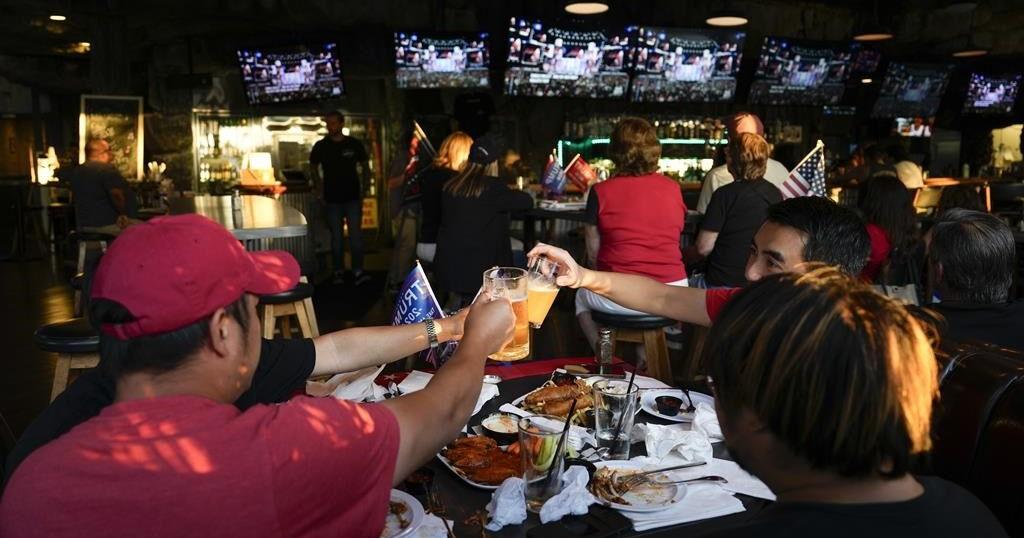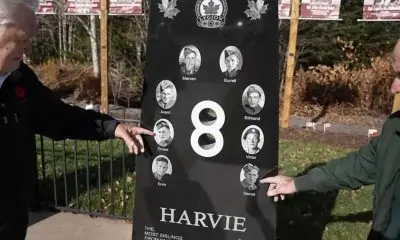Community members were left reeling Tuesday after tense protests at a Hindu temple in the Greater Toronto Area led to police intervention two nights in a row, the clashes adding fuel to already fiery Canada-India diplomatic relations.
Monday night saw hundreds of demonstrators gather outside the Hindu Sabha Mandir in Brampton, Ont., where police allege people in the crowd were carrying weapons and objects were being thrown.
That demonstration came after violent protests on Sunday outside the same temple spilled over to two other locations in Mississauga, Ont.
Varsha Shah said she was attending a service at the temple with her family on Sunday night when the demonstrations broke out and attendees were told to stay inside for their safety.
Shah said she attends the Hindu Sabha temple regularly, and she had never seen conflict like this since moving to Canada from India 25 years ago.
“It feels very bad (and) I’m not an emotional person,” Shah said.
“We have to protect ourselves,” she said. “We live here peacefully. We don’t want to fight anybody.”
Shah added that she hopes the violence doesn’t discourage people from visiting the temple. “People have to not worry. Temple is safe.”
Groups that backed Monday’s demonstration suggested it came in response to the Sunday protest, which was initiated by Sikh separatists who seek an independent nation called Khalistan.
Peel Regional Police said the Monday evening demonstration converged at an intersection outside the temple, shutting down traffic along Gore Road in both directions.
Police said in a statement that the protest was “declared unlawful” after weapons were seen in the crowd. The force’s public order unit was deployed, leading to the groups’ dispersal late Monday night.
“Several hundred protesters from opposing sides raised tensions, and the event quickly escalated,” said police spokesperson Richard Chin. “During the evening, demonstrators were observed to have wooden sticks which could be used as weapons and items were thrown at cars and towards people.”
Peel police have asked for the public’s help to identify an individual who allegedly sprayed a “noxious substance” during Monday’s protests, leaving one person with minor injuries.
The World Sikh Organization of Canada condemned Monday’s protest.
“What occurred last night was deeply troubling and rooted in deliberate incitement,” the organization’s Ontario president, Jaspreet Kaur, said in a statement Tuesday, urging law enforcement to prosecute those who were involved.
Brampton Mayor Patrick Brown also denounced alleged calls for anti-Sikh violence at Monday’s demonstration.
“Agitators trying to incite violence need to be dealt with promptly and swiftly with the full extent of our hate laws,” he wrote in a Tuesday morning post on X.
Brown’s latest comments came after he urged demonstrators on both sides to “de-escalate” in the aftermath of Sunday’s protest outside the temple.
Brampton Coun. Gurpartap Singh Toor, in whose ward the temple is located, encouraged those who have information about the violence to contact law enforcement.
“We need to make absolutely one thing clear: this is Canada. This kind of behaviour does not belong in Canada,” Toor told reporters outside the temple on Tuesday.
“It doesn’t matter which side of the equation you belong on, if you’re engaging in violent activity, action will be taken.”
Three people were arrested and a Peel police officer was suspended after Sunday’s demonstration, with social media videos seeming to show fist fights and people striking each other with poles on what appeared to be grounds of the temple.
Protests also took place at a temple in Surrey, B.C.
During question period in the House of Commons on Tuesday, Prime Minister Justin Trudeau “unequivocally” condemned the violence seen over the past two days in some South Asian communities.
“Let me be very, very clear: the individuals who are inciting violence and division and hatred in no way represent either the Sikh community or the Hindu community in Canada,” Trudeau said.
Indian Prime Minister Narendra Modi has said he expects Canada to “ensure justice,” while calling Sunday’s protest in Brampton a deliberate attack on a Hindu temple and an attempt to intimidate diplomats.
The group Sikhs for Justice said that Khalistan supporters had been protesting Indian consulate officials who made an announced a visit to the Brampton temple to provide administrative services such as helping seniors access their pensions. The group alleged such visits are used to find informants to report on Khalistan supporters.
Canada expelled six Indian diplomats last month over allegations that they used their positions to collect information on Canadians in the Sikh separatist movement, and then passed the details on to criminal gangs who targeted the individuals directly.
India, which has rejected those allegations, has long accused Canada of harbouring terrorists involved in the Sikh separatist movement. Canadian officials have said related extradition requests from India often lack adequate proof.
Meanwhile, Brown has said he plans to bring a motion to city council to look at prohibiting protests at places of worship.
Similar bylaws have been considered in other regions in Ontario.
In the neighbouring municipality of Vaughan, city council unanimously approved a bylaw in June to prohibit “organizing or participating in a nuisance demonstration” within 100 metres of “vulnerable social infrastructure” such as places of worship, schools, child-care centres or hospitals.
Last week, Ottawa city council voted to study the feasibility of a similar bylaw, with plans for staff to report their findings by early next year.
This report by The Canadian Press was first published Nov. 5, 2024.

